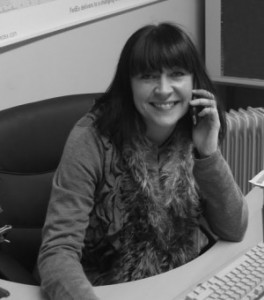Women taking big strides towards boardroom diversity
Women scaling new career height on the road to boardroom diversity
This Sunday marks the second anniversary of Lord Davies’ Report Women on Boards which recommended that FTSE 100 boards should aim for a minimum of 25 percent female representation by 2015. Two years on, figures show that female representation on corporate boards has increased to 17.3 percent, up from 12.5 percent.
Women have long been underrepresented in the higher echelons of management and in the boardroom; organisations with women in top positions see the business benefits of increasing the number of women on boards. The Financial Skills Partnership (FSP) introduced a training programme aimed at developing leadership skills among women managers. The programme, called Through the Glass Ceiling is part of a wider initiative recently launched by the FSP called Leadership 21st Century. This aims to help the financial services sector restore its global reputation and rebuild consumer confidence by focussing specifically on the effectiveness of boards and good governance in the industry. Diversity is a key part of this.
Liz Field, CEO of the Financial Skills Partnership (FSP) explained, “The advantage of increasing the number of women on boards is clear; boards perform far better if people come from a range of diverse backgrounds. It is very important to work with business leaders to create avenues of growth to help lead a new generation of women to top boardroom positions.”
“While there has been a significant increase in the number of women on boards since the Lord Davies Report was published, the UK hasn’t yet reached the level the report recommends be achieved by 2015, of 25 percent. Many businesses could still do more to ensure they attract and recruit board directors from a wider pool, improving gender representation and other forms of diversity on their boards.”
The course offered by the FSP which is now in its second year encourages women to break through the barriers that have hindered their development in their chosen profession. Women who have participated in the course in the past believe it has equipped them with skills that will assist their professional development.
Kirsty Hudson from HSBC, said, “It brought likeminded professionals together to improve existing skills, learn new skills and discuss and challenge our ways of thinking.”
Following the success of Through the Glass Ceiling, the FSP has started consulting on a programme that supports the needs of women who are already MDs, CEOs and in their first board appointments.
Liz concluded, “Our programme supports women and aids them with tools to navigate an environment that has previously been noted for gender bias. Companies have to work together to promote a culture of gender equality and create talent pipelines, not just at board level but from the ground up. It’s very encouraging that gender representation in boardrooms across the UK is becoming more equal, along with changing company culture and, with the help of programmes like Through the Glass Ceiling, businesses can maximise the potential of the staff they already employ.”

